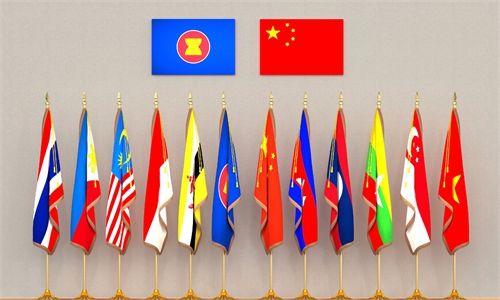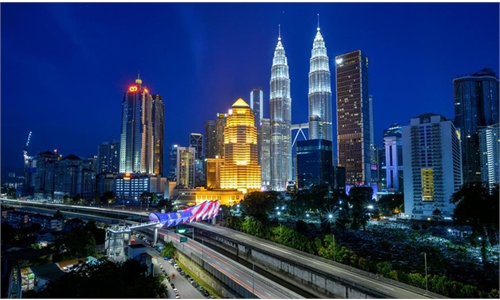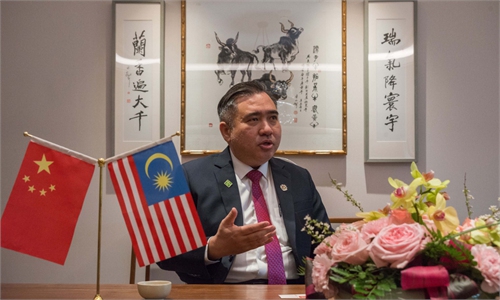
5G Illustration: Chen Xia/GT
The US and EU have warned Malaysia over risks to national security and foreign investment as the Southeast Asian country finalizes a review of its 5G rollout that could reportedly allow Chinese telecom giant Huawei to bid for a role in its telecom infrastructure, Reuters reported on Tuesday, citing letters seen by the Financial Times.Allowing untrusted suppliers in any part of the network subjects Malaysia's infrastructure to national security risks, US Ambassador to Malaysia Brian McFeeters wrote in one of the letters, the report said.
In order to gain a monopoly on 5G, the US is using its influence and power to crack down on Huawei, with the excuse of the so-called national security. It is against this backdrop that the "untrusted suppliers" mentioned by McFeeters are considered to be specifically referring to Huawei.
The news report has not yet been confirmed by the US Embassy in Kuala Lumpur. If the report turns out to be true, the US' unreasonable interference in Malaysia's 5G rollout reflects nothing but American economic hegemony and technological tyranny.
Bloomberg reported on Wednesday that Malaysia will deploy a second 5G network from as early as January 2024. "I don't know who is eyeing the other contract, whether it's Ericsson or Huawei," Communications Minister Fahmi Fadzil was quoted by Bloomberg as saying. "I have said in parliament that I will entertain no lobby whether in or out of Malaysia," he said.
Malaysia has become one of the 5G stragglers in Southeast Asia, Bloomberg reported, citing a report by OpenSignal last year. The switch to the dual 5G network is considered a necessary way to promote competition, improve efficiency, and shore up the development of the 5G industry. As a sovereign country, Malaysia has the right to pursue economic development and social progress, and in this process, creating a fair business environment for foreign enterprises and opposing US long-arm jurisdiction will help the Southeast Asian country to better achieve its own prosperity.
Over the past few years, Washington has been intimidating other countries, trying to make them reject Huawei because of the so-called national security excuse, but US politicians have not offered any evidence to support their charges. It's more and more clear that US accusations against Huawei are unwarranted and US suppression of Huawei is out of malicious intent. One explanation to the US crackdown is that Huawei has triggered a sense of crisis to US elites, and US economic hegemony won't allow Chinese companies to challenge their US counterparts and move to the forefront of the world in technology. If the US government doesn't have the ability to revitalize the economy, choking off China's competitive companies will be the simplest way to maintain its economic hegemony.
Currently, the US is using the so-called national security as an excuse to suppress China's 5G sector, using the so-called supply chain security as an excuse to suppress China's chip industry, and using the so-called human rights as an excuse to suppress China's cotton and textile industry. What lies behind US crackdowns is the fact that China is developing well in both labor-intensive and high-tech industries, threatening US' economic hegemony. The US intention is to curb the development of China's manufacturing industry, with national security and human rights are just its excuses.
China and ASEAN are close neighbors bound by traditional friendship and a shared future. Bilateral trade volume has soared 100 times from 30 years before, while two-way direct investment has exceeded $310 billion. Countries in the region should not give external forces a chance to exercise long-arm jurisdiction on their internal affairs.
China has consistently stated that it will firmly safeguard the legitimate and lawful rights and interests of Chinese companies. The US suppression of Chinese competitive labor-intensive and high-tech companies is escalating regardless of morality and business rules, but US crackdown is doomed to fail.



